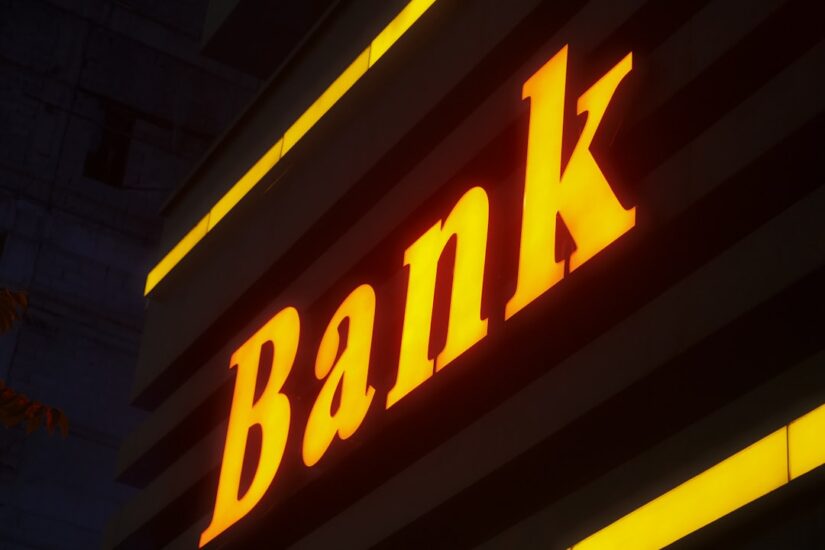Quick Cash Loan Review: Is it Worth the Investment?

Quick cash loans, often referred to as payday loans or short-term loans, are financial products designed to provide immediate access to cash for individuals facing urgent financial needs. These loans are typically characterized by their fast approval processes and minimal documentation requirements, making them an attractive option for those who need money quickly. Borrowers can often receive funds within a few hours or by the next business day, which is a significant advantage when unexpected expenses arise, such as medical bills, car repairs, or emergency home repairs.
The mechanics of quick cash loans are relatively straightforward. Borrowers apply for a loan amount that is usually small, often ranging from $100 to $1,500, depending on the lender and the borrower’s income. The repayment period is typically short, often requiring repayment within two to four weeks.
Interest rates on these loans can be quite high compared to traditional loans, reflecting the risk lenders take on by providing funds without extensive credit checks. This high cost of borrowing is a critical aspect that potential borrowers must consider before proceeding with a quick cash loan.
Key Takeaways
- Quick cash loans are short-term loans that provide fast access to funds, typically with a quick application process and minimal credit requirements.
- Pros of quick cash loans include fast access to funds, minimal credit requirements, and flexibility in how the funds can be used. Cons include high interest rates and potential for debt traps.
- To qualify for a quick cash loan, you typically need to have a steady income, a bank account, and be at least 18 years old. Some lenders may also require a minimum credit score.
- When comparing quick cash loan providers, consider factors such as interest rates, fees, repayment terms, and customer reviews to find the best option for your needs.
- Risks of quick cash loans include high interest rates, potential for debt traps, and the risk of damaging your credit score if you are unable to repay the loan on time.
- Alternatives to quick cash loans include borrowing from friends or family, using a credit card, negotiating with creditors, or seeking assistance from non-profit credit counseling agencies.
- Tips for using quick cash loans responsibly include only borrowing what you can afford to repay, understanding the terms and fees associated with the loan, and having a plan for repayment.
- Whether a quick cash loan is worth the investment depends on your individual financial situation and the specific terms of the loan. Consider the potential costs and risks before making a decision.
Pros and Cons of Quick Cash Loans
The advantages of quick cash loans are numerous, particularly for individuals who find themselves in urgent financial situations. One of the most significant benefits is the speed at which funds can be accessed. In many cases, borrowers can complete an online application in minutes and receive approval almost instantly.
This immediacy can be crucial for those facing emergencies where time is of the essence. Additionally, quick cash loans often do not require a credit check, making them accessible to individuals with poor credit histories or those who may not have established credit yet. However, the drawbacks of quick cash loans cannot be overlooked.
The most glaring issue is the exorbitant interest rates that accompany these loans. Annual percentage rates (APRs) can soar into the triple digits, leading to a cycle of debt if borrowers are unable to repay the loan on time. Furthermore, the short repayment terms can create financial strain, as borrowers may find themselves needing to take out additional loans to cover the original loan’s repayment.
This cycle can lead to a precarious financial situation, where individuals become trapped in a loop of borrowing and repayment.
How to Qualify for a Quick Cash Loan

Qualifying for a quick cash loan typically involves meeting a few basic criteria set by lenders. Most lenders require applicants to be at least 18 years old and possess a valid government-issued ID. Additionally, proof of income is usually necessary to demonstrate the ability to repay the loan.
This income can come from various sources, including employment wages, government benefits, or even self-employment earnings. Lenders may also require applicants to have an active checking account into which the loan funds can be deposited and from which repayments can be withdrawn. While the qualification process is generally less stringent than that of traditional loans, it is essential for borrowers to be aware of their financial situation before applying.
Lenders may assess an applicant’s income level and existing debt obligations to determine their ability to repay the loan. Some lenders may also consider factors such as employment stability and banking history. Understanding these requirements can help potential borrowers prepare their applications more effectively and increase their chances of approval.
Comparing Quick Cash Loan Providers
| Loan Provider | Interest Rate | Maximum Loan Amount | Minimum Credit Score |
|---|---|---|---|
| Provider A | 8% | 10,000 | 600 |
| Provider B | 10% | 15,000 | 650 |
| Provider C | 12% | 20,000 | 700 |
When considering a quick cash loan, it is crucial to compare different providers to find the best terms and conditions that suit individual needs. Various lenders offer quick cash loans, including traditional banks, credit unions, and online lenders. Each type of lender has its own set of advantages and disadvantages.
For instance, traditional banks may offer lower interest rates but often have stricter qualification criteria and longer processing times. In contrast, online lenders typically provide faster service and more lenient requirements but may charge higher fees. In addition to interest rates and fees, borrowers should also evaluate customer service and transparency when comparing lenders.
Reading reviews and testimonials from previous customers can provide insight into the lender’s reputation and reliability. Furthermore, it is essential to scrutinize the fine print of loan agreements for any hidden fees or unfavorable terms that could impact the overall cost of borrowing. By conducting thorough research and comparing multiple options, borrowers can make informed decisions that align with their financial circumstances.
The Risks of Quick Cash Loans
Despite their convenience, quick cash loans carry inherent risks that borrowers must carefully consider before proceeding. One of the most significant risks is the potential for falling into a debt trap. Due to the high-interest rates associated with these loans, borrowers who are unable to repay on time may find themselves needing to take out additional loans to cover their existing debts.
This cycle can lead to escalating financial difficulties and increased stress. Another risk involves the potential for predatory lending practices. Some lenders may exploit vulnerable borrowers by offering loans with exorbitant fees or unfavorable terms that are not clearly disclosed upfront.
This lack of transparency can lead borrowers into agreements that they do not fully understand, resulting in unexpected financial burdens down the line. It is crucial for individuals considering quick cash loans to conduct due diligence on lenders and ensure they are working with reputable institutions that adhere to ethical lending practices.
Alternatives to Quick Cash Loans

For those seeking immediate financial assistance but wary of the risks associated with quick cash loans, several alternatives exist that may provide more favorable terms. One option is a personal loan from a credit union or bank, which typically offers lower interest rates and longer repayment terms than quick cash loans. While these loans may require more documentation and a longer approval process, they can be a more sustainable solution for managing financial emergencies.
Another alternative is borrowing from friends or family members. While this option may come with its own set of challenges—such as potential strain on personal relationships—it can provide interest-free access to funds without the pressure of strict repayment deadlines. Additionally, some employers offer paycheck advances or emergency funds for employees facing financial hardships, which can serve as a viable alternative to high-interest loans.
Tips for Using Quick Cash Loans Responsibly
If individuals decide that a quick cash loan is necessary for their situation, there are several strategies they can employ to use these loans responsibly. First and foremost, it is essential to borrow only what is needed and ensure that repayment is feasible within the specified timeframe. Creating a budget that accounts for both the loan repayment and other essential expenses can help prevent financial strain.
Additionally, borrowers should communicate openly with their lenders if they anticipate difficulty in making payments on time. Many lenders offer options for extending repayment terms or setting up alternative payment plans in such situations. Being proactive about potential challenges can help mitigate the risk of falling into a cycle of debt.
Finally, educating oneself about personal finance management can empower borrowers to make informed decisions in the future and avoid reliance on high-cost borrowing options.
Is a Quick Cash Loan Worth the Investment?
Determining whether a quick cash loan is worth the investment ultimately depends on individual circumstances and financial goals. For some people facing immediate financial emergencies, these loans may provide necessary relief when no other options are available. However, it is crucial for borrowers to weigh the costs against their ability to repay within the short timeframe typically required.
Before committing to a quick cash loan, individuals should consider all available alternatives and assess their long-term financial health. If opting for this type of loan, being informed about terms and conditions and employing responsible borrowing practices can help mitigate risks associated with high-interest debt. Ultimately, understanding one’s financial landscape and making educated choices will lead to better outcomes when navigating urgent financial needs.
FAQs
What is a cash loan?
A cash loan is a type of short-term loan that provides borrowers with a small amount of money that is typically repaid with interest in a lump sum on the borrower’s next payday.
How does a cash loan work?
To obtain a cash loan, a borrower typically fills out an application and provides proof of income and identification. Once approved, the borrower receives the loan amount in cash or deposited into their bank account. The borrower then agrees to repay the loan, plus interest and fees, by a specified date.
What are the requirements for getting a cash loan?
Requirements for obtaining a cash loan may vary by lender, but typically include proof of income, a valid ID, and a checking account. Some lenders may also require a minimum credit score.
What are the benefits of a cash loan?
Cash loans can provide quick access to funds for individuals facing unexpected expenses or financial emergencies. They are also typically easier to qualify for than traditional bank loans.
What are the drawbacks of a cash loan?
Cash loans often come with high interest rates and fees, making them an expensive form of borrowing. Additionally, failure to repay a cash loan on time can result in additional fees and damage to the borrower’s credit score.
How do I choose a reputable cash loan lender?
When choosing a cash loan lender, it’s important to research and compare multiple lenders to find one with transparent terms, reasonable interest rates, and a good reputation. Look for lenders that are licensed and regulated by state authorities.








